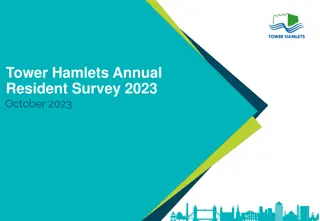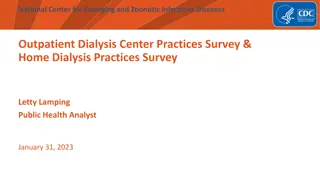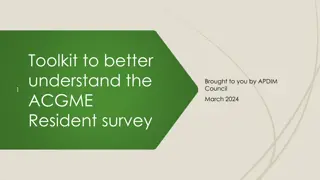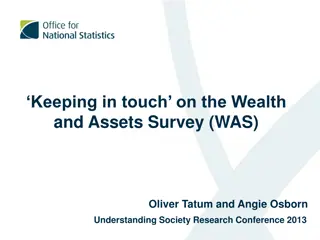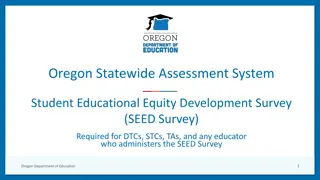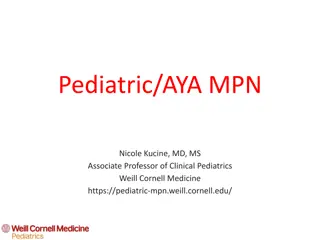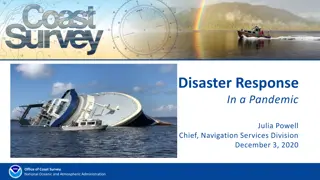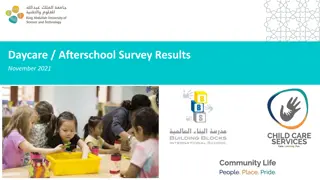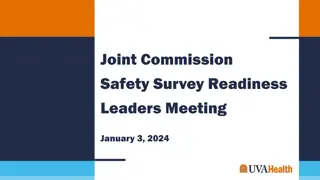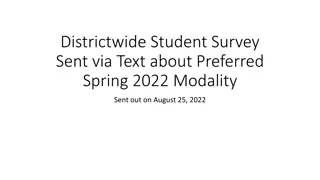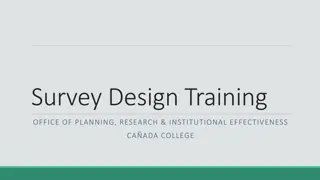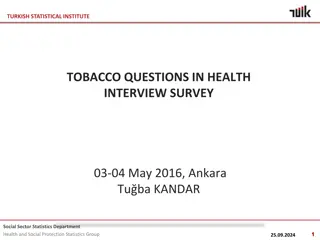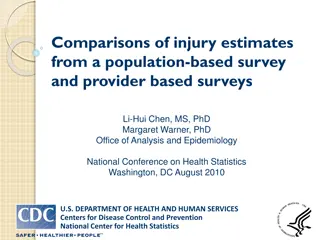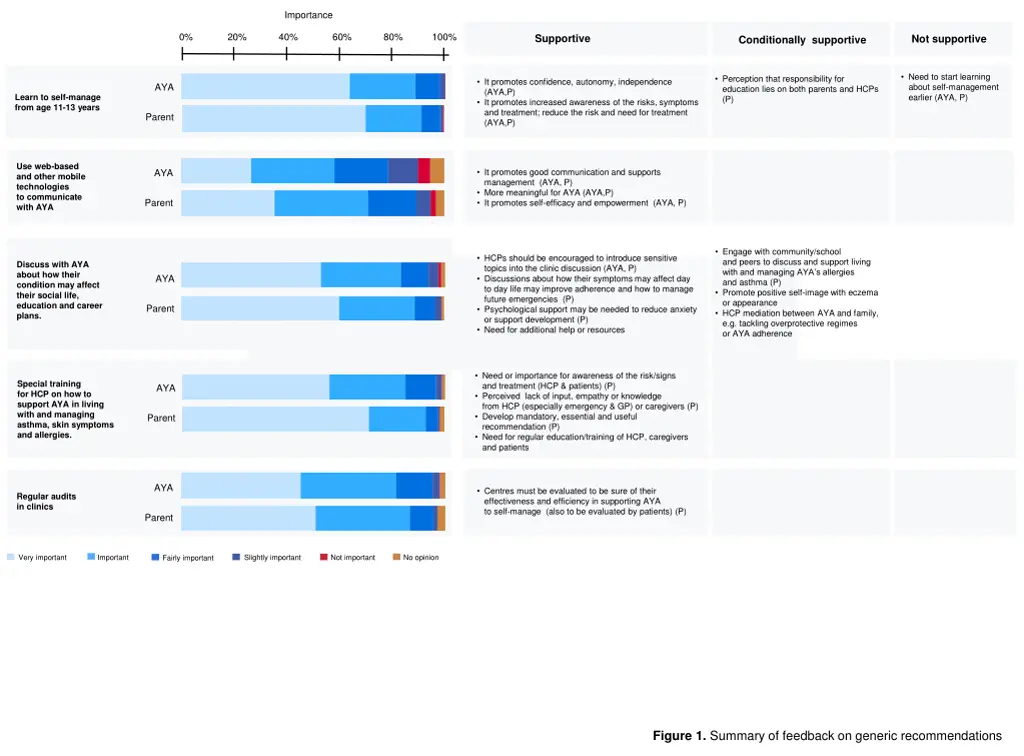
Comprehensive Recommendations for Adolescent Allergy and Asthma Self-Management
Explore crucial guidance for promoting self-management and adherence in adolescents with allergies and asthma. Learn about key strategies such as enhancing communication, fostering independence, and providing support for better outcomes.
Download Presentation

Please find below an Image/Link to download the presentation.
The content on the website is provided AS IS for your information and personal use only. It may not be sold, licensed, or shared on other websites without obtaining consent from the author. If you encounter any issues during the download, it is possible that the publisher has removed the file from their server.
You are allowed to download the files provided on this website for personal or commercial use, subject to the condition that they are used lawfully. All files are the property of their respective owners.
The content on the website is provided AS IS for your information and personal use only. It may not be sold, licensed, or shared on other websites without obtaining consent from the author.
E N D
Presentation Transcript
Importance 0% 20% 40% 60% 80% 100% Supportive Not supportive Conditionally supportive Need to start learning about self-management earlier (AYA, P) Perception that responsibility for education lies on both parents and HCPs (P) It promotes confidence, autonomy, independence (AYA,P) It promotes increased awareness of the risks, symptoms and treatment; reduce the risk and need for treatment (AYA,P) AYA Learn to self-manage from age 11-13 years Parent Use web-based and other mobile technologies to communicate with AYA It promotes good communication and supports management (AYA, P) More meaningful for AYA (AYA,P) It promotes self-efficacy and empowerment (AYA, P) AYA Parent Engage with community/school and peers to discuss and support living with and managing AYA s allergies and asthma (P) Promote positive self-image with eczema or appearance HCP mediation between AYA and family, e.g. tackling overprotective regimes or AYA adherence HCPs should be encouraged to introduce sensitive topics into the clinic discussion (AYA, P) Discussions about how their symptoms may affect day to day life may improve adherence and how to manage future emergencies (P) Psychological support may be needed to reduce anxiety or support development (P) Need for additional help or resources Discuss with AYA about how their condition may affect their social life, education and career plans. AYA Parent Need or importance for awareness of the risk/signs and treatment (HCP & patients) (P) Perceived lack of input, empathy or knowledge from HCP (especially emergency & GP) or caregivers (P) Develop mandatory, essential and useful recommendation (P) Need for regular education/training of HCP, caregivers and patients Special training for HCP on how to support AYA in living with and managing asthma, skin symptoms and allergies. AYA Z Parent AYA Centres must be evaluated to be sure of their effectiveness and efficiency in supporting AYA to self-manage (also to be evaluated by patients) (P) Regular audits in clinics Parent Very important Important Slightly important Not important No opinion Fairly important Figure 1. Summary of feedback on generic recommendations
Importance 0% 20% 40% 60% 80% 100% Supportive Not supportive Conditionally supportive Increase adherence and effectiveness (P) Lower anxiety and increase self-efficacy and empowerment AYA Make treatment easy to understand and to follow Parent Promotes good communication and accurate guidance for management (AYA, P) More meaningful for teens (AYA, P) Promotes self-efficacy and empowerment Would undermine AYA s need to take responsibility for own care Apps, phones, other methods to help remember about their treatment AYA Parent HCP should develop an action plan with the AYA that is individualised and appropriate. AYA Develop a Personal Action Plan Parent AYA Focus consultation on areas where AYA less confident Parent Recommendation is not understood Would welcome such help (AYA, P) Peer support from other AYA with allergy/asthma how to manage their life AYA Parent More meaningful for teens with emotional support and normalisation (P) Promotes self-efficacy, empowerment, and autonomy (P) Practical help, advice and support (P) AYA Adolescent Focus support on social contexts Parent Parent Communication is essential for self-confidence and improved care This will reinforce good adherence, self-management, involvement in social activities AYA Choose motivational conversation Parent Very important Important Slightly important Not important No opinion Fairly important Figure 2. Summary of feedback on adherence and self-management recommendations
Importance 0% 20% 40% 60% 80% 100% Supportive Not supportive Conditionally supportive Prevention: minimise negative outcomes including isolation, bullying, depression. anxiety, death, low confidence, exacerbations or refusal of treatment (P) This is important (P) Psychological support needed AYA Be aware of potential anxiety and depression Parent Mention of possible stress factors (P) Stress can impact on asthma, allergy or eczema AYA Be aware of potential life stressors not necessarily related to condition. Parent Dependent on AYA's mental health or wishes (P) Important to manage anxiety, stress, depression, improve self-confidence and treatment efficacy (P) Be aware when referral to psychologist may be warranted. AYA Parent Dependent on the parents ability; need to support parents and families (P) Responsibility perceived to lie with parents and families Family should be encouraged to support AYA to self-manage when developmentally appropriate Need for confidence, autonomy or independence Responsibility perceived to lie with parents and families AYA Parent Challenging topic for AYA; AYA do not like talking about it (P) Need to reduce risk for feeling different, experiencing embarrassment or bullying (P) Support from contacts (e.g friends, schoolmates, sportmates) is very important for AYA (AYA,P) Need for awareness of the risks, signs, prevention and treatment (e.g friends, school, contacts) (AYA,P) Need to help especially in emergency situations when need AAI or inhalers (P) AYA should be encouraged and supported to tell friends about condition and management AYA Parent Clinics should recommend good developmentally appropriate sources of information Need for concise, clear, updated and accurate sourses of information (P) Need for further and attractive information with new technologies; knowledge is power AYA Parent Very important Important Slightly important Not important No opinion Fairly important Figure 3. Summary of feedback on psychology and support recommendations
Figure 4.Summary of the feedback on draft recommendations of EAACI Guideline on the effective transition of adolescents and young adults with allergy and/or asthma.

